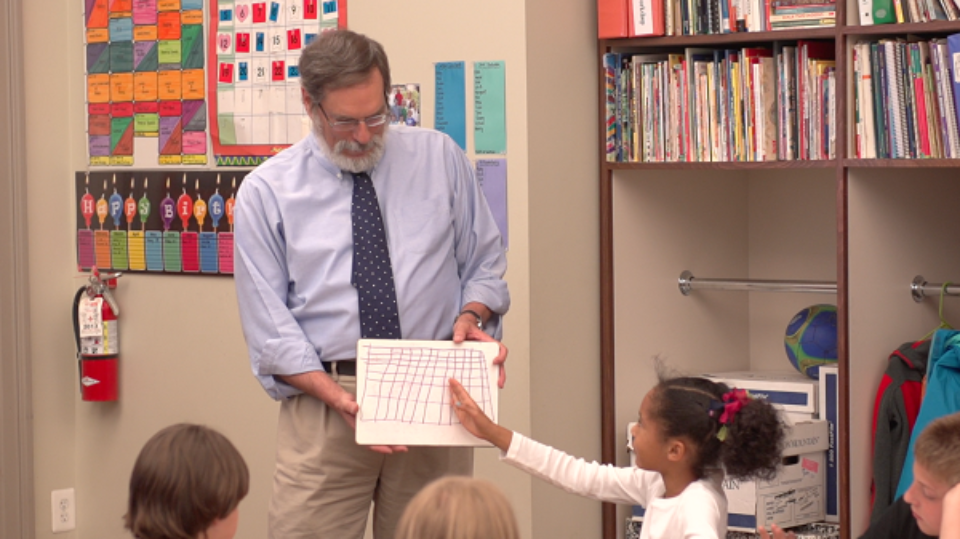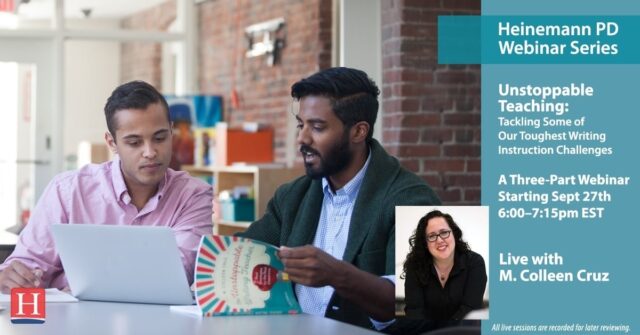
Raising students’ math achievement doesn’t mean ripping up your planning book and starting over. In Accessible Mathematics Steven Leinwand shows how small shifts in the good teaching you already do can make a big difference in student learning. Thoroughly practical and ever-aware of the limits of teachers’ time, Steve gives you everything you need to put his commonsense ideas to use immediately.
In this video, Steve talks about the intimidation that mathematics gives teachers when they are accustomed to simply knowing how to get the right answer, and how to combat it. He states: "the issue of intimidation is a natural tension when you know you're being asked to do things that you're not prepared to do."
♦ ♦ ♦
Looking for PD? Steve Leinwand strengthens teachers’ confidence and capacity to make K–12 math instruction far more effective in his online, On-Demand Course Making Math Far More Accessible to Our Students K-12.
♦ ♦ ♦
Read the transcript of the video:
I think there's every good reason in the world why mathematics should be intimidating to a classroom teacher who knows how to get right answers, who did adequately well in middle school and high school, to be able to get into college, but who knows that they've been taught little more than how to get answers. They know that they don't really know why you invert and multiply. They really don't know why you line up decimals. They don't really know how to help kids understand two step problems. They don't really have a mature sense of place value that talks about tens and hundreds when they know that there's a seven in the tens place.
The issue of intimidation is a natural tension when you know you're being asked to do things that you're not prepared to do. Ergo, great materials, collaboration, sitting in each other's classes, having powerful and effective professional learning communities, and being coached. I find that when I conduct, when I take over, when I support grade level professional learning communities, we start with, "So, what's worth celebrating from the last four days?" We all laugh. We talk about Kyle. We talk about a class where I couldn't believe what the kids did. We talk about the fact that, "I took this risk, and it worked.
Everyone is now in a position to now grow and learn. We turn to, "So, what are we teaching next week? What's the next unit? What's the next chapter? What is the mathematics?" Then we go to LearnZillion, and we go and look at a video about it. We go to the Illustrative Math site, and we go see some problems. We see what the authors of the common course said to do about it. In that process, we're learning math. In that process, we are saying, what are the common misconceptions? "Oh my god, that's why the kids make that mistake all the time."
I think that we ought not say that intimidation, or being intimidated is bad, or a pox on you. It is a natural result of a system that never gave a lot of people a chance to see mathematics in its completeness. That's why again the collaborative structures become so absolutely critical. You will not deal with the intimidation, and therefore, the mediocrity of instruction by someone who is intimidated by it, if we just continue to leave people as isolated as they are.
 Steven Leinwand is Principal Research Analyst at American Institutes for Research in Washington, D.C., where he supports a range of mathematics education initiatives and research. Steve served as Mathematics Supervisor in the Connecticut Department of Education for twenty-two years and is a former president of the National Council of Supervisors of Mathematics. Follow him on Twitter @steve_leinwand.
Steven Leinwand is Principal Research Analyst at American Institutes for Research in Washington, D.C., where he supports a range of mathematics education initiatives and research. Steve served as Mathematics Supervisor in the Connecticut Department of Education for twenty-two years and is a former president of the National Council of Supervisors of Mathematics. Follow him on Twitter @steve_leinwand.


